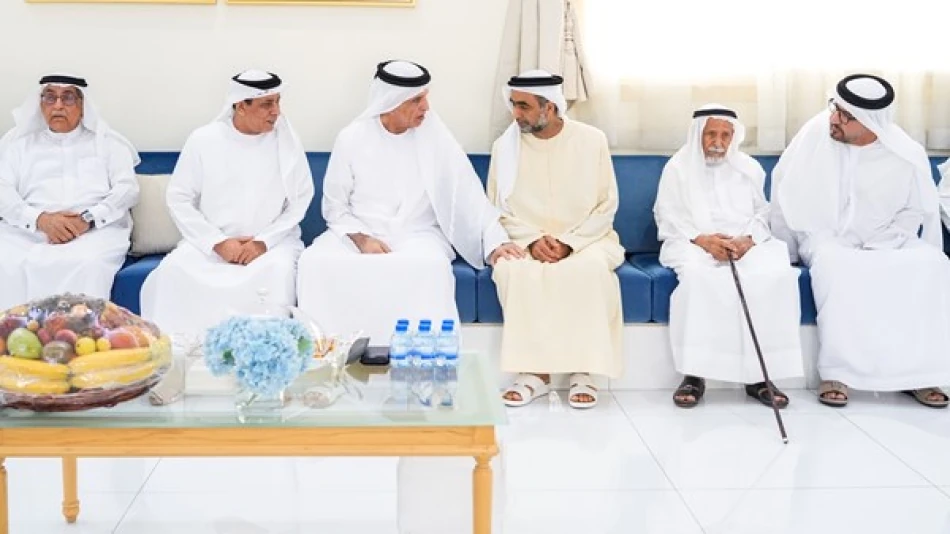
Ruler Extends Condolences Following Passing of Hamad Ali bin Alwan Al Nuaimi
UAE Royal Leadership Demonstrates Unity Through Traditional Condolence Customs
Sheikh Saud bin Saqr Al Qasimi, Ruler of Ras Al Khaimah and member of the UAE's Supreme Council, paid his respects today at the funeral of Hamad Ali Nasser bin Alwan Al Nuaimi, highlighting the enduring importance of traditional diplomatic protocols and tribal solidarity within the Emirates' governance structure.
Cross-Emirate Solidarity on Display
The Ras Al Khaimah ruler traveled to Ajman's Mashiref area to offer condolences at the formal mourning assembly, demonstrating the interconnected nature of the UAE's seven emirates despite their individual sovereignty. Sheikh Saud expressed his sincere condolences and heartfelt sympathy to the deceased's family, praying for divine mercy and patience for the bereaved relatives.
Cultural Diplomacy in the Modern UAE
This gesture reflects the UAE's unique federal structure, where traditional Bedouin customs of mutual respect and support continue to underpin modern governance. The practice of high-ranking officials crossing emirate boundaries to pay respects maintains the social fabric that has enabled the UAE's remarkable transformation from a collection of tribal territories to a global business hub.
Institutional Stability Through Personal Bonds
Such ceremonial visits serve a dual purpose beyond honoring the deceased. They reinforce the personal relationships between ruling families that have kept the UAE politically stable for over five decades, even as neighboring regions have experienced significant upheaval. This stability has been crucial to the country's emergence as a safe haven for international investment and a regional financial center.
The Al Nuaimi Legacy
The Al Nuaimi family name carries significant weight in UAE history, with the clan having ruled Ajman since the 18th century. Maintaining respectful relations with prominent tribal families remains essential for the UAE's rulers, as these networks continue to influence business, politics, and social dynamics across the Emirates.
These traditional protocols, while seemingly ceremonial, represent the soft power mechanisms that have allowed the UAE to maintain internal cohesion while rapidly modernizing its economy and society—a balance that many other Gulf states continue to navigate with varying degrees of success.
Most Viewed News

 Layla Al Mansoori
Layla Al Mansoori






